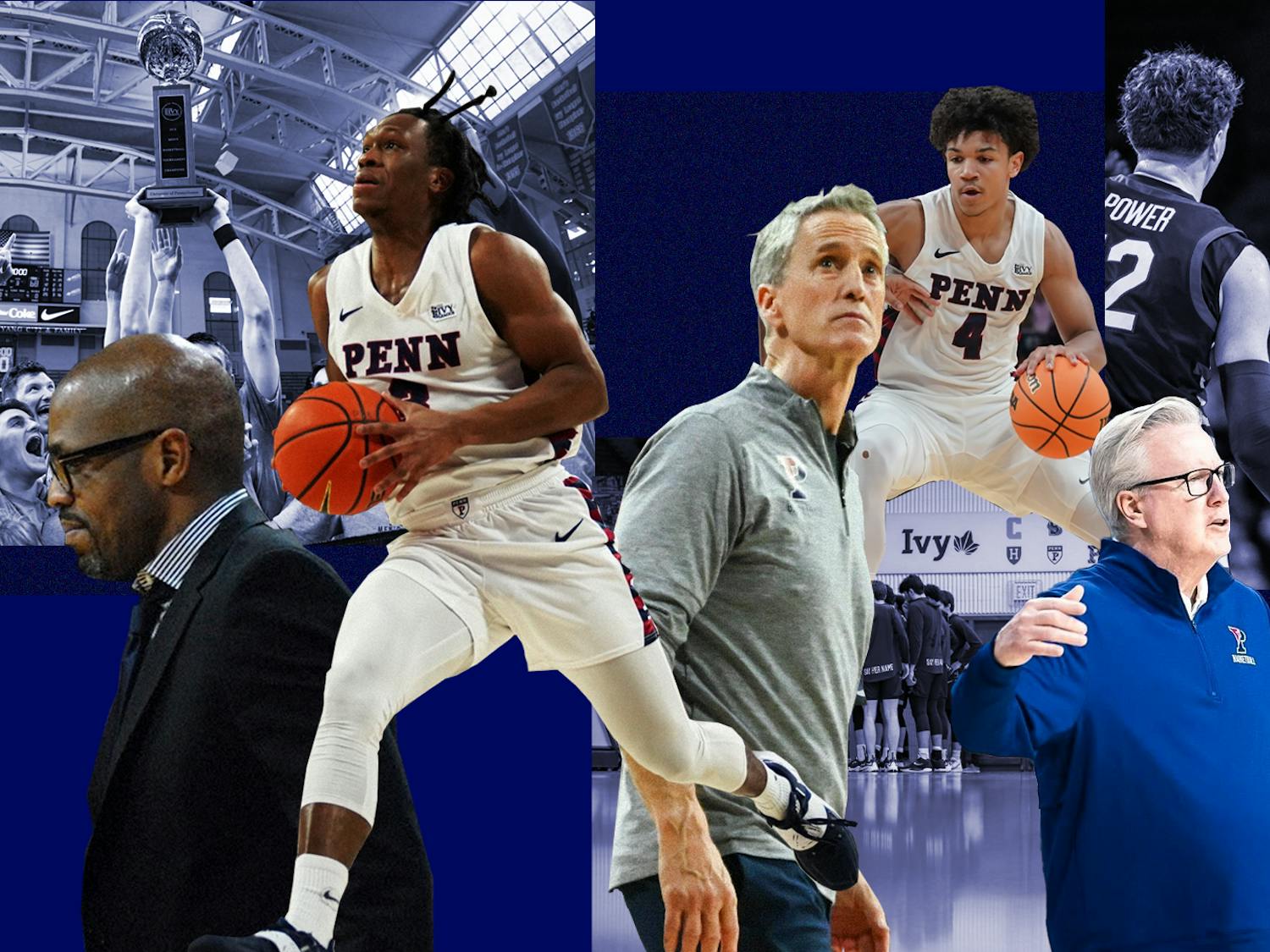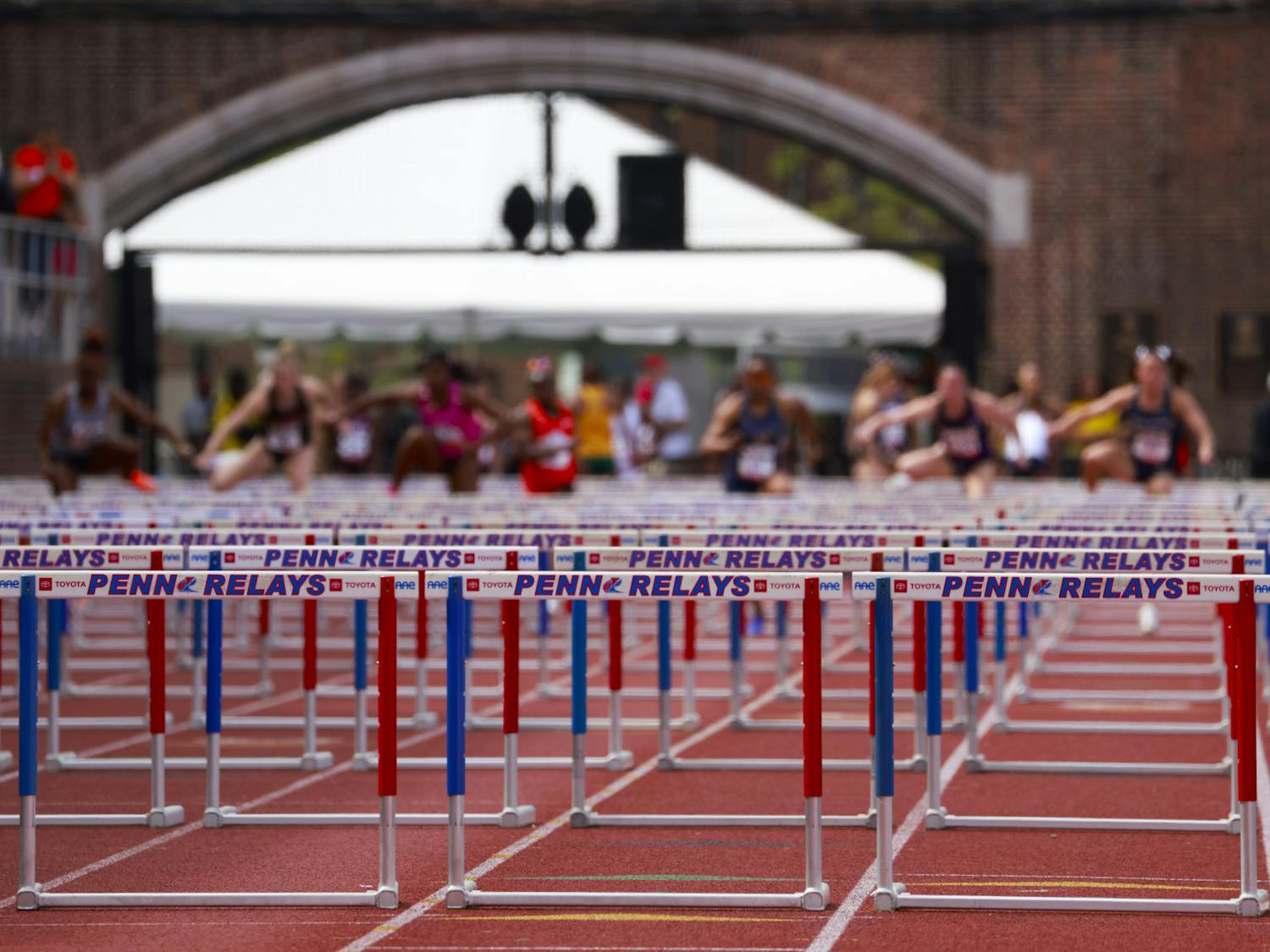March Madness is here, so you know what that means... Actually, if you're in the Ivy League, you probably don't know what it really means. When the Pac-10 voted last October 23rd to bring back a conference basketball tournament starting in 2002, it left the Ancient Eight with the distinction of being the only Division I league without a postseason bash. There are a number of reasons for the exclusivity of the Ivies in this matter, and while it appears that the league's policy will not change anytime soon, there is a good amount of sentiment among fans, players and coaches in favor of creating an Ivy tournament. * Two years ago, an informal vote was taken among the Ivy basketball coaches on the issue of a postseason tournament -- and the result was 7-to-1 in favor of holding one, with the lone dissenting voice coming from then-Princeton coach Bill Carmody. This season, during one of the most competitive Ivy races of the past decade, the opinion of these sideline leaders has not changed. Seven of the eight coaches expressed a desire to see a postseason Ivy Tournament; Princeton coach John Thompson III could not be reached for comment. "I really wish the policy would change, if only for the players," 10th-year Dartmouth coach Dave Faucher said. "I think a tournament would be great, so that we'd really be a part of college basketball." Former Penn assistant and current first-year Cornell coach Steve Donahue echoed Faucher's view. "I would love to see an Ivy League Tournament," Donahue remarked. "I think we're in this business to help out kids, and it's the right thing to do for the majority of the kids at all the institutions. The excitement of playing for a tournament is something they'll never forget." On another front, several coaches shared the feeling that while the majority of schools are pro-tournament, Penn and Princeton are maneuvering to prevent a postseason tourney to protect their own best interests. "It would be a positive if there was a post-season tourney, but I don't see it changing" said Armond Hill, a sixth-year coach at Columbia and former player at Princeton. "It's because there are certain teams that don't want it to change." Considering how 37 of the past 41 Ivy champions have called Old Nassau or West Philadelphia home, one could indeed argue that a tournament -- in which Penn or Princeton could lose and miss the NCAAs -- might not be in the best interest of those two schools. But Penn coach Fran Dunphy, in his 12th year at the helm of the Quakers, is more than willing to give an Ivy tournament a shot. "My opinion has always been the same -- I would like to do what's good for the League," said Dunphy, the Ivy's senior coach. "A conference tournament is good for seven teams, and not so good for the eighth team that wins the regular season. So what's good for the League as a whole -- and in this case seven teams -- would be agreeing that a tournament would be great. "I think that gives logic to having a conference tournament. So I would like to see it. I would like to see us try it." The view from one of the Quakers who is actually on the court, however, is a little different. "The last couple of years, being on Penn, when you win the League in the regular-season like we have, you don't want the conference tournament," Quakers captain Geoff Owens said. "But a full season is a fair assessment usually of who's the best team." This view, though, is not limited to players on the perennial Ancient Eight front-runners. "I'm kind of in the middle on this right now," Harvard captain Dan Clemente said. "The past few years I've always wanted a tournament. I always thought that would be awesome, to give guys a chance to make something happen and to get a bid. "But people argue a good point, in saying why give guys a chance that haven't been working hard all year doing this back-to-back night thing." * Regardless of how the players and the coaches weigh in on this matter, though, they ultimately play no role in determining the outcome of this issue. That distinction begins with the Ivy athletic directors and ends with the Ivy presidents. If a change in League athletic policy was proposed -- such as creating a tournament -- a simple majority vote (five votes) would be needed among the A.D.'s to institute this change. If the proposal passed the A.D. level, then three-quarters (six votes) of Ivy Presidents would have to concur for the proposal to take effect. In 1999, the League's Athletic Directors had an extended meeting where they discussed the status of postseason play -- not just for basketball, but across all sports. The final unanimous agreement reached in that round of talks was that for double round-robin sports -- men's and women's basketball as well as women's volleyball -- there would be no postseason tourney. There were a number of reasons for this vote, according to Jeff Orleans, the Executive Director of the Council of Ivy Group Presidents -- the most compelling one being that having to play all other Ivy teams twice over the course of the year was enough to determine the squad most deserving of the NCAA bid. "The real issue is the double round-robin is rigorous," Orleans said. "For some of the A.D.'s, it was the fact that a tournament would be financially unsuccessful. For others, it was more a reward for winning the double round-robin during the season." Indeed, Penn Athletic Director Steve Bilsky -- a former player for the Quakers -- agreed with this last assessment. "Money is not the issue, and a second bid is not the issue, so you really have to look at it solely as what should be the criteria for who is the best team to represent the Ivy League," Bilsky said. "And what's the better criteria for selecting that team -- a three-day tournament, played on three consecutive days, or 14 games over the course of two months?" Still, several Ivy coaches voiced the opinion that their own A.D.'s would be in favor of a tourney, despite the results of the 1999 vote. But this issue is rendered moot on the Athletic Director level, as both Orleans and Bilsky conceded it would be difficult for a policy change to gain the approval of the necessary six members of the President's council. * Whether or not the current policy will be changed is one issue; whether a tournament would flourish or help the League if implemented is another altogether. "A lot of conferences that have tournaments do it for two reasons," Bilsky said. "One is they're going to get more than one team in anyways, so they do it maybe to get a bubble team in; and two is they make a lot of revenue, both between the television exposure and they usually have it at places where they have big attendance. "And neither of those apply to the Ivy League." Indeed, the Ivies have never received a second bid to the Big Dance, and have only sent a second squad to the NIT five times in 46 years. By comparison, one league that does have a postseason tournament -- Drexel's American East Conference -- has never received a second bid in its 18 years of existence. Moreover, in 17 of those 18 years, one of the top two seeds won the tourney -- blunting the argument from lower-division Ivy squads that their only path to the NCAAs lies in a League tournament. Similarly, external factors are not exactly helping the call for a postseason tourney. Competing in a media market with the Big East, the Atlantic 10 and several smaller conferences, the Ivies could expect at most one game -- the final -- to be televised. And considering how DirecTV dropped its 'Ivy League Friday Nights' offerings after two years, that can't even be guaranteed. "It's hard to tell how a tournament would turn out," Orleans said. "It would not be at the level of the Atlantic-10, at least at the beginning. And I think you'd have to go into it with the idea that you'd run a tangible deficit, at least for the first few years." On the flip side of the coin, however, lies a competitive season like this one. Now, when more than two teams are in contention down the stretch, a tournament would only increase excitement, guaranteeing fan support and profitability for the venture. "If you look at this weekend, and the excitement that it's bringing to four schools, and you think about how that would be for all the schools, a tournament would be a real positive," second-year Yale coach James Jones said. All involved admit that making the tournament viable would be tough. Issues of how many teams to invite and where to hold it are sure to spark debate. And moreover, one cannot ignore the fact that the Pac-10 initially gave up on a tourney in the 1980s because it was financially unsuccessful. But the potentially beneficial intangibles that come with a tournament are quite hard to ignore. "It would help promote Ivy League basketball and would put us on par with other Division I schools," Donahue said."I think not having a tournament hurts us in recruiting, I think it hurts us in fan recognition, and I think it hurts us in appreciation for basketball on the Ivy campuses." * In the end, it all boils down to the fact that the eight Ivy Athletic Directors feel a post-season tourney would detract from the rigors of the 14-game, double-round-robin regular season. While coaches might not agree, the A.D.'s continue to stand by the argument that the unique and taxing Friday-Saturday road trip schedule gives a better indication of a team's true ability than a tournament ever could. Revenues, exposure and academics are not what would make a tournament untenable. The main obstacle is the fact that many do not see a tournament as the best way to determine which Ivy team is best suited for the league's sole NCAA berth. For some, that way is three days in March, when anything can happen. For others, that is the previous two months, when everything does happen.
The Daily Pennsylvanian is an independent, student-run newspaper. Please consider making a donation to support the coverage that shapes the University. Your generosity ensures a future of strong journalism at Penn.
Donate







